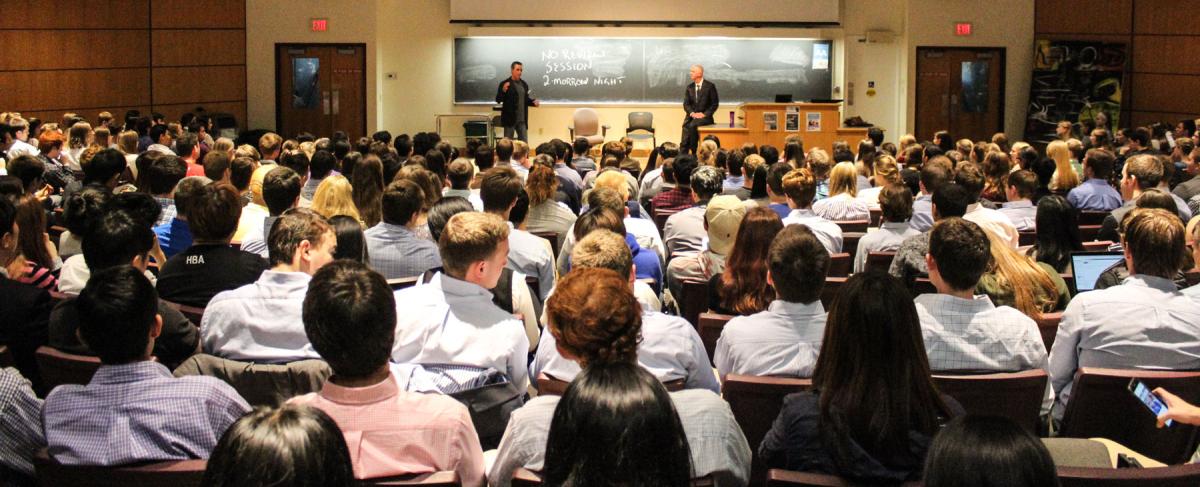Sports Innovator Focuses on the Future
October 21, 2016

“What are the true opportunities for cross-pollination in a world sports community? What skills and network will you need?” asked sports agent/marketing innovator J.B. Bernstein ’91 in Professor Todd Crosset’s graduate course, Socio-Historical Foundations of Sport. The UMass grad is best known for creating The Million Dollar Arm contest in India, which generated the first two athletes from India to sign professional sports contracts in North America (both with the Pittsburg Pirates). The contest was the subject of the 2013 Disney Movie of same name with Jon Hamm playing Bernstein.
“I’ve always been an entrepreneur,” J.B. told the students, recounting his own innovations as a marketer/agent, his independence of mind as an executive with Procter & Gamble and Grey Group, and his development of new licensing and merchandising programs with Major League Soccer.
“When I first proposed the Million Dollar Arm contest, everyone said no; that it was the worst idea ever. When people tell you your idea is bad, you’re probably really on to something. What they’re really saying is—that’s a lot of work. For me, ‘no’ has become softer over the years.
“I’m just like you—no silver spoon; no old boy network,” he continued. “Isenberg and UMass forces you to get out of your comfort zone. It’s what differentiated me. I always outworked everyone under the table.”
For the Million Dollar Arm contest, Bernstein took inspiration from Yao Ming’s high-profile career in the NBA. The first NBA athlete from China, Yao, now retired, continues to generate tremendous national pride. China now sports 950,000 public basketball courts and NBA jersey sales that eclipse the next three national markets combined, noted Bernstein. Learning from Yao mania, Bernstein embraced an insight that was out-of-the-box but utterly logical: in nations with 1 billion+ people, the odds are strong that you will field outlier athletes with outstanding baseball and basketball talent.
Back to the Future
A decade earlier, J.B. banked on similarly powerful insights in founding his own agency, Access Group of Miami. The agency’s big idea and focus were to leverage the personal brands and marketability of his athlete clients. Player salaries, he observed, “involved relatively fixed projections with incentives spelled out in standardized contracts.” In contrast, the sky was the limit for athletes with serious marketing potential—a concept well-honed, he noted, by Sport Management department namesake Mark McCormack. In Access Group’s creative space, J.B. secured fortunes and ground-breaking marketing and commercial opportunities for Barry Bonds, Barry Sanders, Marcus Allen, Emmet Smith, and other extraordinary athletes.
Think about where it’s all going—how you can play a role.Today, 90% of J.B.’s initiatives involve corporate consulting, he emphasized. These include forward-facing industries like aerial stadium camera footage via drones and virtual reality experiences that capture concerts, sporting events, and campus tours. Imagine, sitting on stage with Mick Jagger, he remarked. Understanding the dynamics of “sportainment,” he said, is crucial.
“If my career has been anything, it’s a harbinger of things to come,” Bernstein told the students. “I’ve seen massive shifts in the industry and they’re getting exponentially faster.” J.B. concluded with a challenge to his student audience: “Think about where it’s all going—how you can play a role. “What, can you do to change the world in your industry?”